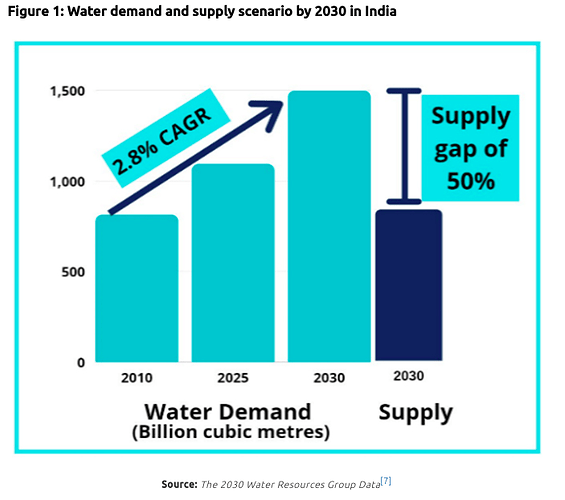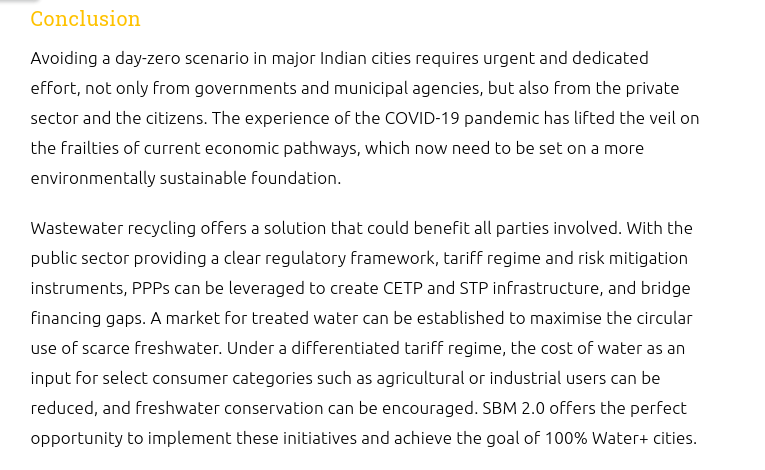- Makes for some grim reading, but these developments are not new.

-
After all, 600 million people in India currently face acute water shortages, and almost 200,000 lose their lives from lack of access to safe water.[1] More than 12 percent of the country’s population (or approximately 163 million) are already living the “Day Zero” scenario,[a] with no access to clean water within or near their homes.[2] The COVID-19 pandemic has exacerbated the water crisis by increasing the demand for domestic water by 20-25 percent, as hygiene awareness has grown and households are practicing handwashing more regularly.[3]. The future scenario gives no hope, as water demand is projected to exceed supply by 50 percent by 2030 (See Figure 1). Agriculture would be the worst hit, followed by industries that are heavily dependent on water, such as food processing, beverages, textiles, metals, chemical, paper and leather. The water shortage could result in a six-percent loss in GDP by 2050.[4], [5],[6]
This summary report demonstrates an undeniable scientific consensus about the urgency of the climate crisis, its primary causes, its current devastating impacts – especially on most climate vulnerable regions – and the irreversible harm that will occur if warming surpasses 1.5°C, even temporarily.

